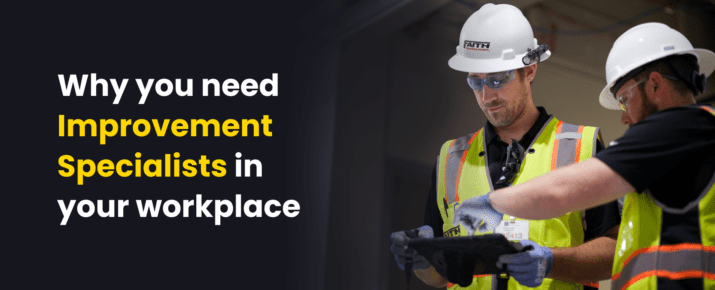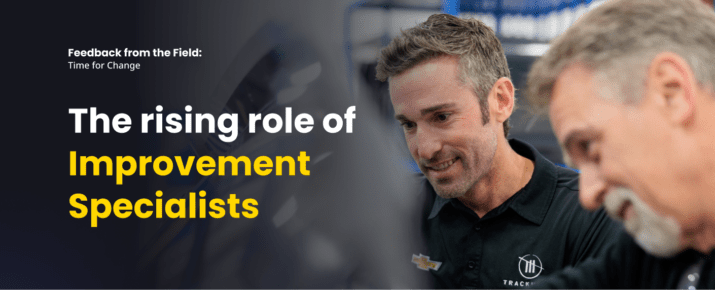4 Powerful Ways to Drive Accountability in the Workplace
Feedback From The Field | World Of Work | By | 20 Dec 2021 | 4 minute read

We all like to think we are accountable people. In a perfect world, we would have no issues coming to management about workplace inefficiencies or potential stumbling blocks to success. But in reality, there is often a creeping fear about the repercussions of speaking up and making yourself a target.
Fear turns to malaise, which quickly becomes general apathy about the state of the company. And when team members no longer care about speaking up or making the workplace better, it’s incredibly difficult to turn the ship around.
To set teams up for success, it’s critical that you encourage accountability in the workplace. Here’s how.
What is accountability in the workplace?
What’s your company’s mission statement? What are its values, its goals, its long-term aspirations? Each team member needs to understand the ethos of the business in order to be truly accountable for it. Only by defining your expectations of your team can you hold them to a certain standard.
So why is workplace accountability so important? As Atlassian Work Futurist Dom Price puts it: “Companies are only as healthy as the teams that compose them.” That means if teams are encouraged to be more accountable in the workplace, that will influence the company as a whole, helping to support a work environment that’s more direct and upfront about workplace issues, for example. But if team members are fearful about any repercussions of accountability, problems will go unnoticed and quickly snowball into major issues – potentially damaging your reputation and your bottom line.
Examples of accountability in the workplace
You probably already have a fair idea about what accountability in the workplace means to you, especially in respect of your organization. It can be something as small as expecting your team to always be present for their shift and completing the tasks that have been assigned to them.
But there can also be forms of accountability that are difficult to measure in the traditional sense – being responsible employees, always trying to do the right thing, and working towards a common goal for the benefit of the company and their co-workers.
Accountability vs responsibility
It’s easy to confuse responsibility with accountability, which in itself can lead to problematic issues down the track. Whereas responsibility is all about an individual’s defined role at work and what they can bring to the table with their particular skill set, accountability takes ownership of their place in the business and the work they have been given. Providing regular comments through performance reviews can reinforce accountability by giving employees clear feedback on their performance, responsibilities, and areas for growth. It can – and should – go even further, with accountable team members being proactive about making the company a better place for everyone.
Accountability is so important because it not only impacts the individual but the wider team. Without workplace accountability, your organization suffers. If someone is late for work, there are immediate gaps in production. If team members start submitting poor-quality work, your brand reputation becomes damaged. And if a safety issue isn’t raised, it can have devastating consequences for your business.
So just how can you generate greater workplace accountability? Here are four powerful drivers.
1. Build trust by listening
In collaboration with YouGov, our report Feedback from the Field: Researching the frontline experience with SafetyCulture found that frontline workers often feel they are seen but not heard. In fact, more than two in three (67%) frontline workers from the US, UK and Australia say they’re “never, rarely, or only sometimes listened to on topics that matter to them the most”.
In the context of the Great Resignation to come, a lack of trust between leadership and employees could mean you end up losing some of your best people. Management, therefore, needs to make an effort to show they’re willing to hear concerns and feedback. Just think about the knock-on effects of ignoring a safety concern brought up by a frontline worker.
2. Show your team you’re willing to take action
Unfortunately, many workers today feel that feedback is only one-directional, which prevents a positive feedback loop and reinforces the belief that nothing will be done if someone were to report a safety issue. The old saying still rings true: employees don’t leave companies, they leave managers.
The solution is to be a proactive leader who your employees see as someone they can come to about even the most minor issue. By showing your team that you’re not only willing to listen to their concerns but to take action on them, you create healthier communication and can catch problems to stay ahead of the curve.
Whether your employees are fully remote or based in several locations, take the time to speak with them on the phone or meet them in person. Toby Schulz, co-founder of cleaning company Maid2Match, manages over 100 professional cleaners yet makes routine trips to visit each of them for one-on-one conversations. Especially if your organization is growing, keeping in close touch with your team is crucial.
3. Create a safe environment for reporting issues
Fear of retaliation is driving under-reporting across organizations. That includes everything from safety concerns to discrimination, abuse and harassment. And in the age of COVID-19 where the safety of employees and clients is paramount, a lack of reporting to management, including adherence to COVID-19 protocols, should concern all leaders.
One solution to the growing under-reporting problem is to give staff an easy and anonymous way to make a report, such as with capture-and-notify technology like QR codes. This gives them an opportunity to ‘be heard’ without fear of retribution, and there’s the added benefit of the technology streamlining the reporting process and centralizing the data in one location.
4. Give your team members a ‘valued voice’
Only one in four (27%) US and Australian workers feel empowered to solve issues by themselves – and it’s even less in the UK (22%). Feeling confident that they have a voice that’s valued is becoming an increasing priority for jobseekers, and top talent aren’t afraid to jump ship if they feel another employer will empower them to take action.
When asked about the importance of having a ‘valued voice’ when considering a new job or role, the vast majority of workers agreed it influenced their decision. In fact, while 2020 was the year of being ‘flexible’ in the workplace, we’re seeing a growing trend of employees wanting to feel empowered and given autonomy by their leaders.
Creating an accountable workplace starts at the very top. Leadership must show through their own actions that they want their people to embrace a speak-up culture. More than that, they want to know you are willing to listen to their needs and take action when they raise important issues.
Important Notice
The information contained in this article is general in nature and you should consider whether the information is appropriate to your specific needs. Legal and other matters referred to in this article are based on our interpretation of laws existing at the time and should not be relied on in place of professional advice. We are not responsible for the content of any site owned by a third party that may be linked to this article. SafetyCulture disclaims all liability (except for any liability which by law cannot be excluded) for any error, inaccuracy, or omission from the information contained in this article, any site linked to this article, and any loss or damage suffered by any person directly or indirectly through relying on this information.





